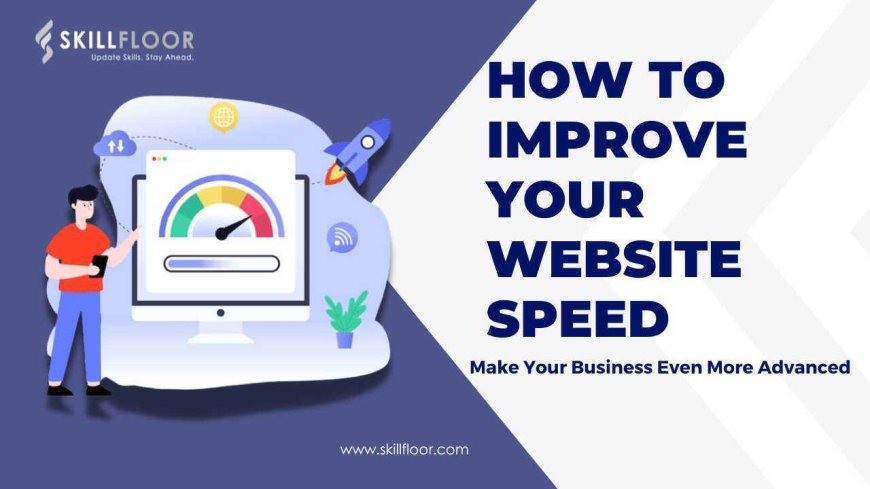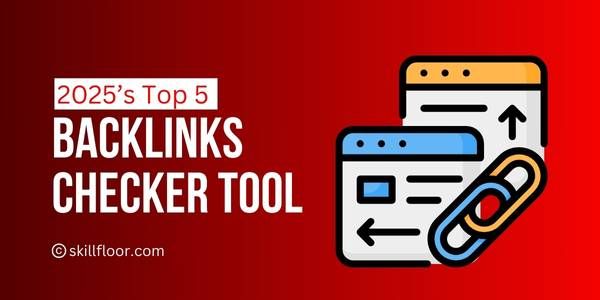Why Website Speed Matters and How to Improve
Discover why website speed matters for user experience and search engine rankings. Learn how to improve speed for better performance.

Hey, there! Ever tapped your fingers nervously while waiting for a website to load? In the current rapid digital surroundings, we expect websites to load almost fast. When they don't, it's like waiting for extra time: irritating and frequently pushing us to find alternatives. This is when the power of website speed comes into play. A speedy site not only keeps us engaged but also contributes importantly to a company's overall success. So, get into why website speed is so critical in the realm of Digital Marketing, Social Media Marketing, PPC, and Email Marketing, and how you can give your site a much-needed boost!
The Importance of Website Speed
Website speed has a direct impact on the user experience. If your website loads quickly, visitors are more inclined to stay and investigate, possibly becoming loyal clients. However, it is not only about keeping guests happy. Here are some basic reasons why website speed is important:
First Impressions Count: When someone visits your website for the first time, you have only a few seconds to grab their attention. A fast-loading site makes a great first impression, setting the tone for a positive experience.
Bounce Rates: The longer a site takes to load, the higher the chance visitors will “bounce” off to another site. Studies show that if a site takes longer than 3 seconds to load, many users will abandon it altogether. Faster speeds mean lower bounce rates.
Search Engine Ranking: Google and other search engines prioritize faster sites in their rankings. This means that improving your website speed can help your site climb higher in search results, leading to more organic traffic.
Mobile Users: With more people browsing the web on their phones, website speed is crucial. Mobile users are often on the go and expect instant access. Slow sites can be particularly frustrating on mobile devices.
Conversion Rates: If you’re running an online store, website speed can directly impact your sales. Faster sites create a smoother shopping experience, leading to higher conversion rates and more sales.
How to Improve Website Speed
Now that we know why website speed is so important, how to make your site faster. Improving your site’s speed doesn’t have to be rocket science. Here are some straightforward and effective ways to boost your site’s performance:
-
Optimize Images: Large, unoptimized images are one of the biggest culprits of slow loading times. Make sure to compress your images without sacrificing quality. Tools like TinyPNG or ImageOptim can help reduce file sizes.
-
Minimize HTTP Requests: Every element on your site (images, scripts, CSS files) requires an HTTP request to load. The more requests, the slower your site. Try to minimize these by combining files and reducing the number of elements on each page.
-
Enable Browser Caching: When visitors come to your site, browser caching allows their browser to store some data locally. This means that when they return, your site can load faster because it doesn’t have to download the same data again.
-
Use a Content Delivery Network (CDN): CDNs distribute your site’s content across multiple servers around the world. This means that when someone visits your site, they can download content from the server closest to them, speeding up load times.
-
Minify CSS, JavaScript, and HTML: Removing unnecessary characters from your code (like spaces and comments) can help your site load faster. Many tools and plugins are available to help with this process.
-
Reduce Server Response Time: Your server’s response time is a key factor in website speed. Choose a reliable magento hosting provider and consider upgrading your hosting plan if your current one is slow.
-
Enable Compression: Compressing your site’s files can important reduce load times. Gzip is a popular tool for compressing files and can be enabled through most web servers.
-
Optimize Web Fonts: While web fonts make your site look stylish, they can also slow it down. Limit the number of fonts and weights you use and make sure they’re optimized for speed.
-
Lazy Loading: Implement lazy loading for images and videos. This technique ensures that media only loads when it's about to come into the user’s view, which can significantly speed up the initial load time.
-
Regularly Monitor and Test: Use tools like Google PageSpeed Insights, GTmetrix, or Pingdom to regularly test your site’s speed. These tools provide valuable insights and suggestions on how to improve your website speed.
The Importance of Website Speed In Digital Marketing Strategies
When posting material on social media, the speed with which your website loads is important. Social media users have short attention spans, so if your site takes too long to load, they may lose interest and leave. Fast-loading websites improve the user experience and boosts the possibility that social media users will interact with your material.
Pay-Per-Click (PPC) advertising
In PPC advertising efforts, every click is important. A slow website might result in wasted ad spend since people may click on your advertising but then leave if the site takes too long to load. You may increase the effectiveness of your PPC advertising and return on investment by providing rapid load times.
Email Marketing
The main objective of email marketing is frequently to drive visitors to your website. However, if your website takes too long to load, visitors may lose interest before they even reach it. Fast load times ensure that users can rapidly access the material you promote in your email campaigns, boosting the chances of conversion.
Putting It All Together
So, there you have it! Improving your website speed is a bit like tuning up a car – a few tweaks here and there can make a big difference in performance. Not only will your visitors thank you, but you’ll also see benefits in search engine rankings and conversion rates.
Remember, the goal is to create a seamless, speedy experience for your users. By optimizing images, minimizing requests, leveraging caching and CDNs, and regularly monitoring your site’s performance, you can keep your site running smoothly and quickly.
In today’s competitive online landscape, every millisecond counts. Whether you’re running a blog, an e-commerce store, or a corporate website, making website speed a priority is essential for success.
High-Volume Keywords to Keep in Mind
When working on website speed, consider integrating these high-volume keywords into your content strategy:
-
Website performance
-
Page load time
-
Website optimization
-
Web hosting
-
Speed test tools
-
User experience
-
Mobile Optimization
-
Content delivery network
Each of these keywords is related to website speed and can help attract more traffic to your site when used effectively.
In online technology, website speed is more than simply a technical concern; it's a key aspect that influences user experience, search engine rankings, and overall success. Understanding its importance and taking action to improve it will ensure that your site not only meets but exceeds, the expectations of your visitors.
Take the time to improve your website and watch how it improves your internet presence. Happy speeding up!






























































